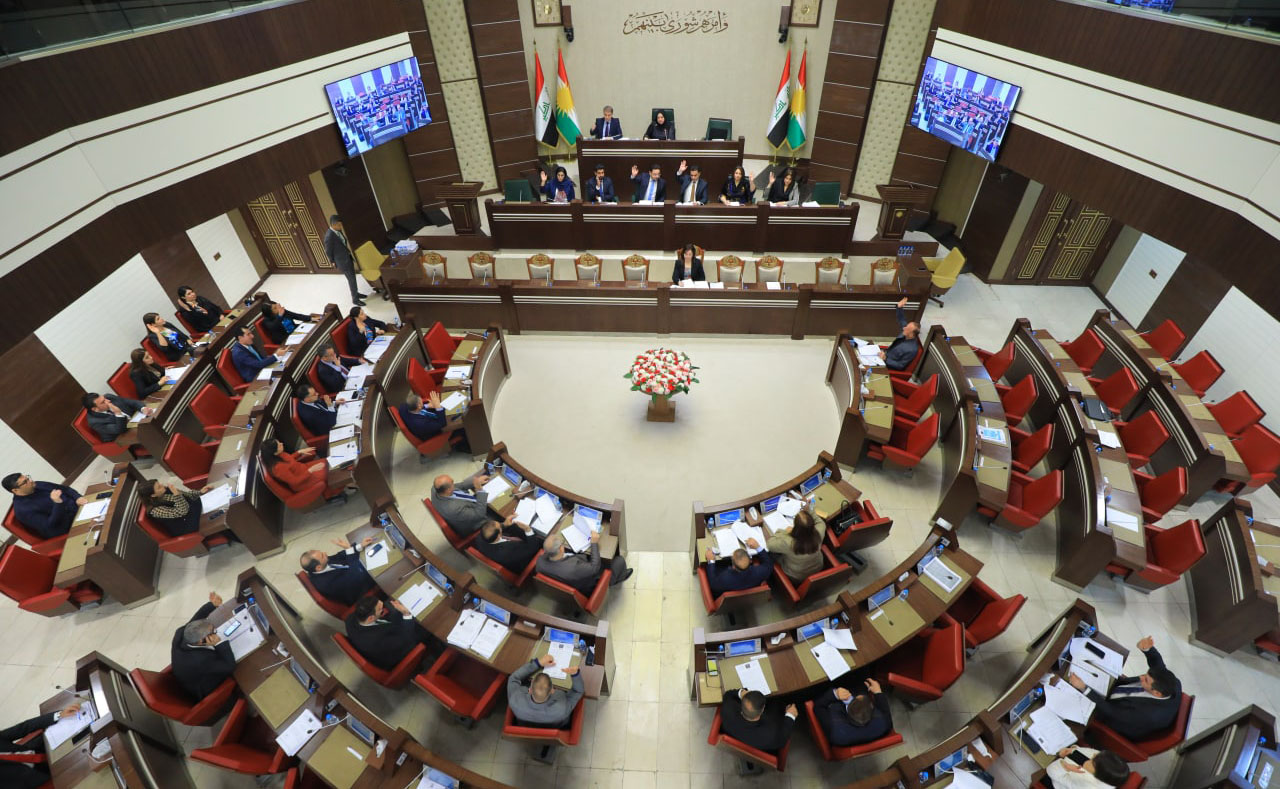Five candidates are competing to win the Christian quota seat in Duhok Northern Province of the Iraqi Kurdistan Parliament, two of whom represent the Babylonian Movement led by Ryan Al-Kildani, while two other candidates affiliate to the Kurdistan Democratic Party KDP.
On May 6, the Independent High Electoral Commission in Iraq IHEC allocated five quota seats for religious and ethnic components in the Kurdistan Region of Iraqi KRI, distributed among four electoral districts. According to the distribution mechanism, two seats were allocated for Turkmen in Erbil and Sulaymaniyah, three seats for Christians in Erbil, Sulaymaniyah, and Dohuk, while according to the decision of the Judicial Authority for Elections and the Commission’s spokeswoman, the quota seat in Dohuk was allocated to the Armenian component.
Farid Yaqoub, a Christian figure in Duhok and a member of the fourth session of the Kurdistan Parliament, told (Kirkuk Now) five candidates are competing in Duhok for the Christian quota seat, two of them are from the Kurdistan Democratic Party, two from the Babylonian Movement, in addition to a member of the previous session of the Kurdistan Parliament.
Five Christian parties and political groups have decided to boycott the elections in protest against the reduction of the number of minority quota seats from 11 to 5 seats, which resulted in Christians losing two seats.
Yaqoub pointed out that "the five parties have decided to boycott the elections throughout Kurdistan in protest against the failure to implement our demands. We will not go to the ballot boxes and we do not care who goes to vote and for whom they will vote."
Ninos Odisho, a member of the Assyrian Democratic Movement – one of the parties that decided to boycott the elections – told KirkukNow, “The largest percentage of Christians are in Duhok province, yet we were allocated a single quota seat. We announced the boycott because they did not meet our demands to increase the number of quota seats. Now we see it necessary to amend the decision to reduce the number of quota seats to 11.”
Khaled Abbas, the head of the Duhok branch of the Independent High Electoral Commission in Iraq, told KirkukNow, “Five candidates are competing for the single seat allocated to Christians in Duhok province. There will be no change in the number of quota seats.”
In Erbil, seven candidates are competing for the quota seat.
Two decades ago, Iraq was home for over 1,5 million Christians, 3% of Iraq's population falling to 800,000 in 2003 following gulf war. They are mainly living in the provinces of Baghdad, Nineveh, Duhok, Kirkuk and Erbil.
Latest figures say currently only 250,000 to 500,000 Christians are living in Iraq. The number of Christians in Iraq has fallen to 250,000, mostly in the KRI, the Iraqi High Commission for Human Rights said March 2023.
The Iraqi constitution recognized Christianity the second religion in Iraq following Islam, and Syriac as their official language.
The Turkmen parties, which were allocated two seats in Erbil and Sulaymaniyah, confirmed their intention to participate in the elections.
The head of the Millet (People) list in Erbil, Azad Kurachi, said, “We will participate in the elections with the aim of amending the law in the new session and we will do everything we can to increase the number of quota seats.”
“The quota system in its previous form was in favor of minorities… We want Turkmen to be present in parliament in order to defend the rights of our people.”
In Erbil, 14 candidates will compete for the Turkmen quota seat, while in Kifri district of Sulaymaniyah province, six candidates are entering the race to win the quota seat.
Turkmen, the third largest ethnic group in Iraq after Arabs and Kurds, are spread across the country, residing almost exclusively in the northern towns and villages stretching from Tal Afar through Mosul, Erbil, Altun center of Kirkuk and Altun Kopri district, Tuz Khurmatu of Salahaddin and Kifri and Khanaqin in DIyala. They are all Muslims, half Sunnis and half Shiites.





